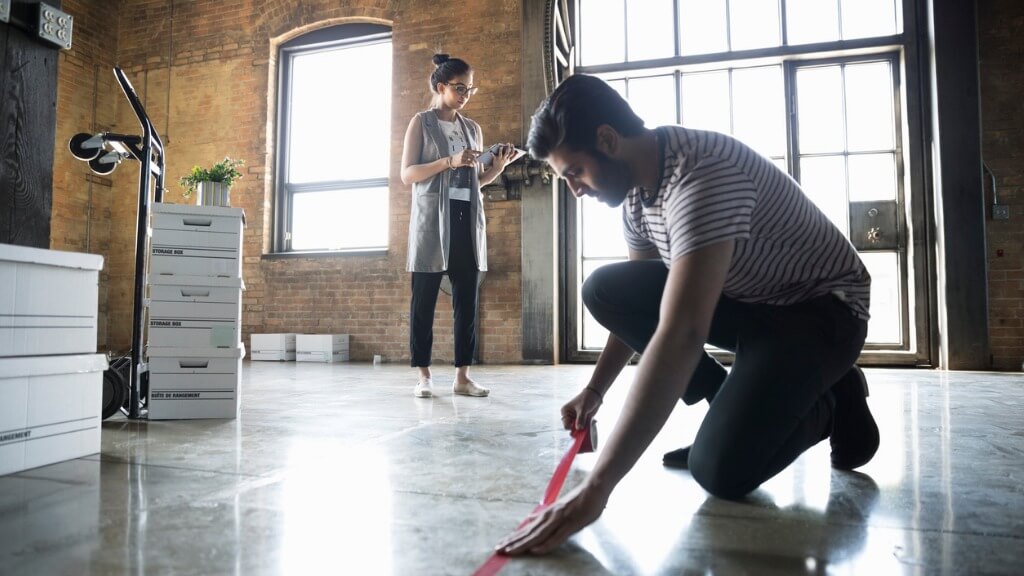It's one of the hardest aspects of growing a business, but with careful preparation you can make the leap from sole trader to scale-up status.
Scaling Up From A One-Person Business
It's one of the hardest aspects of growing a business, but with careful preparation you can make the leap from sole trader to scale-up status.

The hardest part of building a business isn’t getting it off the ground. It’s what happens next; building it up and maintaining constant growth. The hard work is never ‘over’.
The ultimate goal for most business owners is to share their product or service offering. This can mean catering to a particular niche or scaling your company to reach a mass audience. The process of growing your business isn’t rocket science, but there are lots of moving parts to consider, so here are my tips for staying on track when you’re in a position to grow.
Money, money, money
A simple but often overlooked truth is, you have to make money right from the get-go. As a one-man-band, not only is profitability essential for you to make a proper go of the business, it's a great sign for investors and the attitude will increase your survival rate.
Yes, there’s the age-old example of Amazon not making money, or the ‘Unicorn’ start-ups valued at billions regardless of turnover, but the average person thinking of starting out on their own should be doing all they can to prove the business concept and show profitability right from the start.
You might take investment and accept a period of lower or no profits while you scale, but the inclination and ability to generate profit at an early stage speaks volumes.
Sadly, this drive to make money and be self-sufficient is lacking amongst many new businesses who are looking to make a land-grab for customers or brand awareness before they have a sustainable operation.
Save for a rainy day, every day
Don't be wasteful. I read in one of Duncan Bannatyne's books that he saved paperclips from inbound mail and so his office never had to buy any. Some people might read that and think how pedantic that is, but to me if you're not keeping an eye on these small costs at the start then you may find things spiral further down the line.
Never lose sight of the importance of saving money. If you're a VC funded start-up and have money to burn, go ahead and install a slide in your office... but if you're a sensible person starting out, don't waste that hard-earned profit. An unexpected bill or sales slump can be a tough blow for a start-up.
I’m not in the food business, but I’m often shocked by how many restaurants take on a property, invest heavily in expensive furniture, and then close within six months. If I were starting a restaurant as my first business, I’d be looking at local auctions for nearly-new furniture to save on costs. Additionally, I’d explore online platforms that offer outdoor restaurant dining furniture, where you can find durable, high-quality pieces at more affordable prices.
In fact, the desk in my office right now was rescued from a nearby company that was moving premises and chucking it out!
I’m not in the food business but I'm often shocked at the number of restaurants that take on a property, kit it out with expensive furniture and six months later the place has gone bust. If I was starting a restaurant as my first business I'd be looking up local auctions and buying the nearly-new furniture that’s available there.
In fact, the desk in my office right now was rescued from a nearby company that was moving premises and chucking it out!
Making money from scratch, starting at square one, is difficult - so don’t splash out on something unless it’s absolutely necessary to give your business operations an edge.

Welcome to the cheap seats: do you really need expensive furniture?
Make your own time
I’ve heard many excuses from other would-be entrepreneurs about how there just aren’t enough hours in the day to start a business. This mentality will not get you far, you need to do your all to make a go of your business venture.
Starting a business is not a part time job, in order for it to be successful you have to put in the time - work nights, work weekends, prove to yourself you've got something.
It won’t come easily, building a successful business requires sacrifice: you work all the time, you don't go on holidays, you don't pay yourself more than the bare minimum, but in the end if you put that effort in I truly believe you can be successful. It’s a test of ‘true grit’ that will see you through the ups and downs of scaling a business.
I'm fortunate enough to have never had a full-time job working for anyone else because I was trying and failing, or indeed, simply successfully proving how not to do it, since I was a teenager.
I am a firm believer that if you stay determined and continually build your knowledge, when you do have that ‘lightbulb’ moment, you'll have built the skillset to execute and capitalise on that opportunity.
Time may be limited but it’s yours to take.
The right team is key
Invest in your team and look after them. Provide them with incentives that will make them want to stay. Without a strong and motivated team, scaling up becomes just that much more difficult – high staff turnover in period of change also leads to an unsettled environment that can hamper your ability to attract talent too!
We have employee bonuses, yearly progression opportunities, promote internally and our nights out involve the whole team going to VIP events that feel really special.
I'm by no means saying to blow money on big nights out when you're just starting, but if the business grows and becomes successful, don't be greedy. Look after your team, it's money well spent.
Learn the art of delegation
Like many small business owners, I really struggled to delegate, now you can't stop me. Not only do I delegate, I encourage my employees to think outside the box and bring ideas to me rather than everything coming from me – it’s a matter of trust.
In each of the four key areas of my business I have a dedicated and hardworking individual who I trust leading the division. I haven't signed an employment contract in about five years as I leave it to the head of division whose judgement I trust completely. This has also allowed me to be able to step back and see the bigger picture as the business expands.
It's easy to become distracted by the small things that happen on a day-to-day basis, especially in an SME you've built from scratch. I've essentially removed myself from all that entirely.

You can't do it all, so learn the art of delegating
Negotiate, negotiate
Negotiate over everything - and I mean everything. This doesn't necessarily mean trying to squeeze everyone to breaking point over time or costs, but you need to make sure you are getting the best value for your money.
One of the key areas almost any business can negotiate a saving on is rent. Despite what letting agents may say or want, there is always flexibility in price, so use this to your advantage.
Over the years I've rented offices rent free or with very low rents because I’ve done my homework and found premises that have been empty for a while and the landlord is happy to have someone paying the business rates!
Of course, supply and demand varies across the country but when scaling up, be prepared to sacrifice non-essentials on your ‘wishlist’ if you can; be it an exact location, parking, décor etc.
It’s a numbers game
I've worked with the same accountant since I was 18 or 19 and a mantra of his is that “the most valuable commodity in business is information, it's also free.”
Don't put your head in the sand when it comes to your margins and costs. Our accountancy software is reconciled to our bank balances every day (which is not a common practice for SMEs, but should be), and almost every day I glance at report.
This allows me to take better informed decisions every day, it also means I can spot warning signs and act early.
Adam Ewart, CEO and Founder, Send My Bag.
Thanks for signing up to Minutehack alerts.
Brilliant editorials heading your way soon.
Okay, Thanks!


